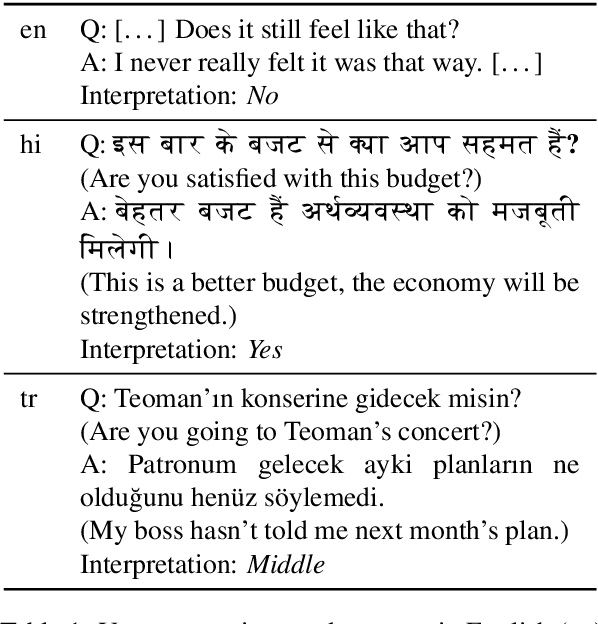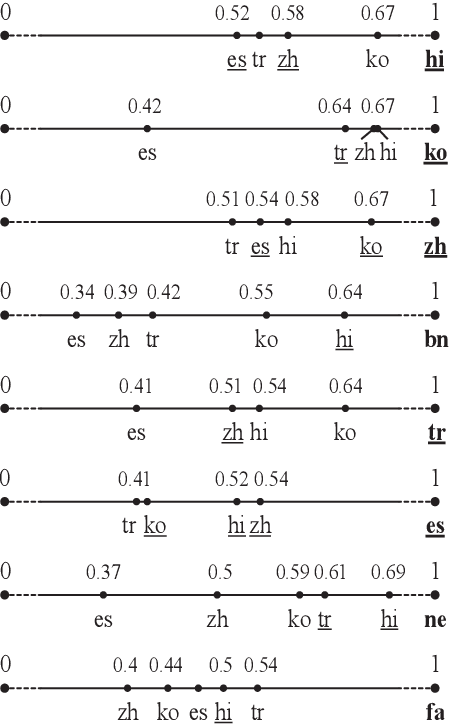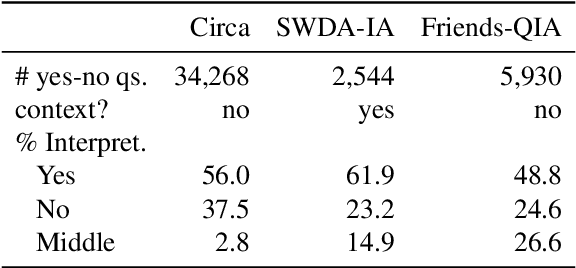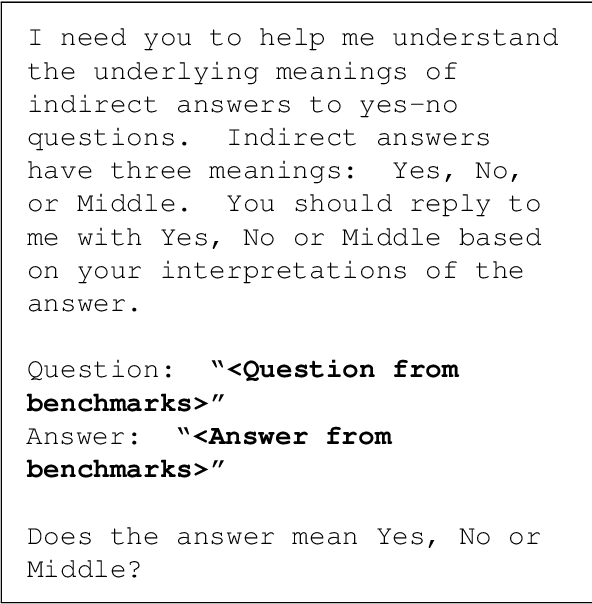Interpreting Indirect Answers to Yes-No Questions in Multiple Languages
Paper and Code
Oct 20, 2023



Yes-no questions expect a yes or no for an answer, but people often skip polar keywords. Instead, they answer with long explanations that must be interpreted. In this paper, we focus on this challenging problem and release new benchmarks in eight languages. We present a distant supervision approach to collect training data. We also demonstrate that direct answers (i.e., with polar keywords) are useful to train models to interpret indirect answers (i.e., without polar keywords). Experimental results demonstrate that monolingual fine-tuning is beneficial if training data can be obtained via distant supervision for the language of interest (5 languages). Additionally, we show that cross-lingual fine-tuning is always beneficial (8 languages).
* Accepted to EMNLP 2023 Findings
 Add to Chrome
Add to Chrome Add to Firefox
Add to Firefox Add to Edge
Add to Edge